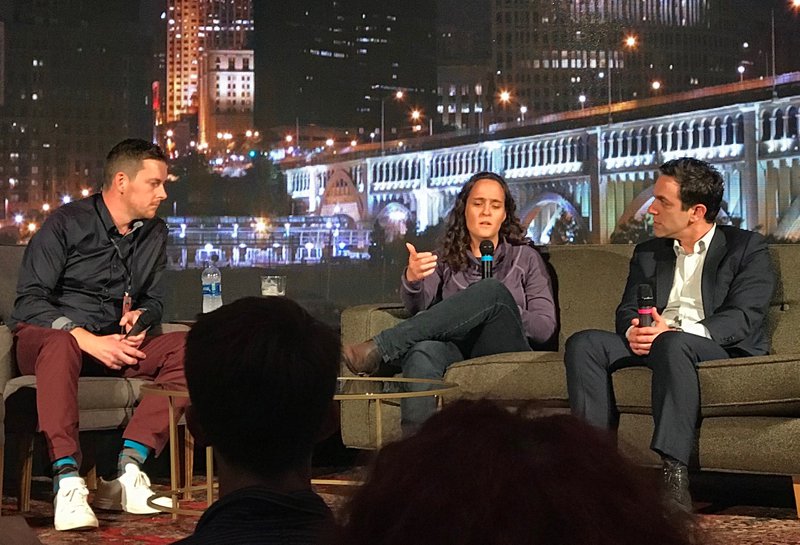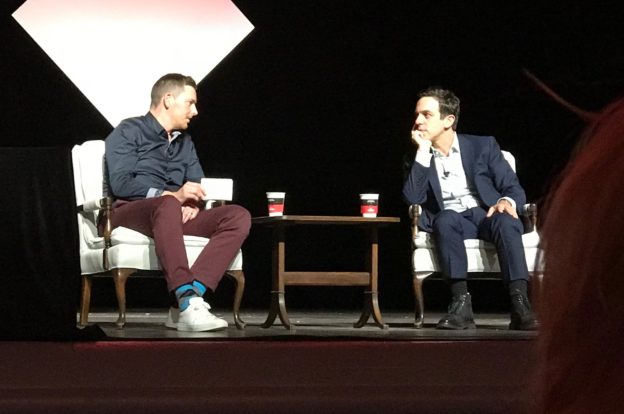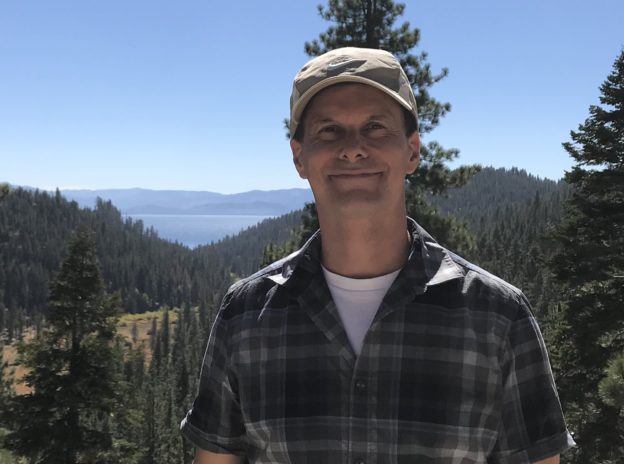As I mentioned last week, I had the opportunity to attend the Industry Conference in Cleveland this week. From beginning to end, it was a great experience.
Workshops
On Monday, I took two half-day workshops, with Ash Maurya in the morning and with Teresa Torres in the afternoon. Both were wonderful, and I learned a lot from each that I'm still digesting.
I've always been a huge fan of Ash (he came on my podcast 3 times, dating all the way back to 2010!). It's exciting to learn about the new concepts he's working on under the name Innovator's Gift. The most relevant to me is the Customer Forces Canvas. It provides a way to structure Jobs To Be Done interviews and simplifies JTBD considerably in my estimation. I just joined Ash's private community to explore these ideas further, so if you're interested in such things, maybe I'll see you there.
Teresa's work is new to me, but the idea of continuous discovery seems like a slam dunk for us at Moraware. After some very valuable interview practice, I found myself wanting the 2-day version of her workshop, but I'll have to make do by reading all the materials on her ProductTalk website as soon as possible.
An open question for me is if Ash's and Teresa's approaches are complementary or if I'll have to compare their guidance and make a choice. Evaluating these techniques further is one of my highest priorities post-conference.
The full conference was Tuesday and Wednesday. All the talks were very good, even the small number that weren't on the main stage. I and others tweeted about many of the talks at length – and the conference organizers hired a journalist to summarize takeaways from each talk so that we didn't have to – how cool is that?! The biggest name was BJ Novak, and his chat was surprisingly relevant and useful. My favorite talks were probably from Gibson Biddle and Scott Belsky (with his new book!), but they were all very good – not a single clunker in the bunch.
I quite liked the separation between the talks on the main stage followed by Q&A sessions in a more intimate setting (the previous two speakers were always paired, sometimes to interesting effect). Not everyone wanted to participate in the Q&A, so this separation enhanced the pacing of the conference and the ability of attendees to balance content with networking.

The venue itself worked perfectly for the way the conference was organized. It was mostly one big room with a big stage on one end, a much smaller stage on the other end (for the Q&A sessions), and the sponsor stuff and food in between. They even had a "podcaster's row" along the side, which I thought was quite clever and useful (it's on my to-do list to listen to each).
Sponsors were probably the most surprising aspect of the conference for me. There were about 10-15 with booths of various sizes. Some I had heard of (UserVoice, UserTesting, Optimizely), but most I had not. In particular, I had no idea that there were such sophisticated tools for analytics and in-app communications – tools like Pendo and Aptrinsic (and maybe Amplitude). We've long considered adding something like Intercom or Drift, but both Pendo and Aptrinsic seem like better fits for us. I was really impressed by both of them, and I suspect one will be a key part of our software soon. I wouldn't be surprised if we added Qordoba at some point, too.
If I look ahead to three years from now, there are three key changes I'd like to have made as a result of this conference:
- Interview customers weekly – this has to happen within the next 6 months. It's super important for Moraware, but it's new and slightly scary. The most immediate improvement I need to make is to stop asking leading questions (thanks Teresa!)
- Develop a culture of experimentation – I've been aware of A/B testing for some time, but I see now what a deep commitment it is … and how realistic it is. Thanks to the Optimizely team for a very inspiring conversation on this topic (and a great conference talk by Jon Noronha). This has to start with a personal mindset shift for me – how many decisions do I make that could be answered better with an experiment?
- Develop a culture of feedback – NPS surveys aren't new to me, but we don't use them yet at Moraware. It was very cool to see Gibson Biddle include an NPS feedback survey seamlessly in his talk. In fact, seeking feedback is probably a big part of the reason he's such a great speaker (and wow, he is). Talking with experienced product managers like Jenny Wanger made it clear to me that seeking feedback can and should be a normal part of both a company's and an individual professional's experience. Nobody likes this, and I won't either, but I have to make that leap.
That leads me to the #1 benefit of this conference: connecting with my Product Management peers. Again, I'm new to this role, so I don't yet have an expansive grasp of the state of our craft. I have great experience leading me into this role, so I know I'll learn quickly, but I still gotta learn. I know content isn't enough for me – I need personal connections to learn and grow with. I was struck from the first person I met (hi Stacey!) to the last (hi Tiffany!) how kind and interesting and smart everyone was. I like being part of this community already, and I look forward to bringing value to it over time.
Overall, I left this conference exhausted from all the learning and humbled by the collective wisdom of the speakers, attendees, organizers, and sponsors. As a newbie, I felt welcomed and accepted from the start. It was a great experience, and I'd recommend INDUSTRY to any new or experienced project manager. I'll be back next year, so I hope to see you there!

